Andrzej Łapicki
Nacimiento : 1924-11-11, Ryga, Łotwa
Muerte : 2012-07-21

Tomek's Father
Difficulty of human relations in a 3-cornered tale: a neurotic woman, idealistic young man and his mother. Tomek is a clean-cut, high-minded geography student. He lives with his mother Zofia, a sensitive, practicing Catholic, like her son. When he meets Julia, a depressed woman older than he, he first tries to comfort her, then invites her to stay with him and his mother. Tomek makes a trip to West Berlin to visit his well-off father. He refuses to take money from him and looks for work as a house painter. Julia ends up in a rest home for treatment, while Tomek is trying to make their relationship work.

Hulanicki
An Uruguayan diplomat brings his new wife with him on a business trip to Poland in the summer immediately preceding the outbreak of World War II.

Ruczynski
Anna, a nurse, meets her wartime lover Marcel in 1951. Learning that he has been sentenced to death for his role in the Home Army, she hides him in her cellar for five years. She gets pregnant with his child and has the baby out of the wedlock. Despite the hardships and gossip she holds much better than he. In 1956 when the political climate changes, he resurfaces and is arrested, but then acquitted by the court.

Jerzy
Ewa is a young ambitious engineer who starts to work for the team of an acclaimed architect Jerzy. Gradually she becomes aware of the bizarre relations he has with his wife and lovers.

German Officer
La película cuenta la historia biográfica de Karol Wojtyla, comenzando en 1926 en Polonia: muestra la invasión nazi a ese país, y la vida de Wojtyla como sacerdote, obispo y cardenal, hasta que finalmente es nombrado papa con el nombre de Juan Pablo II.

Stanisław Bielecki
The four sequences in the film cover four days in a life of young Warsaw lad in September 1938, 1939, 1943 and 1944. In the first sequence Jurek decides not to study in the Sorbonne but enlists in a Polish military school instead. In the second sequence the war starts and Warsaw is occupied. In the third sequence he works in the underground resistance. The final sequence takes place during the Warsaw uprising.
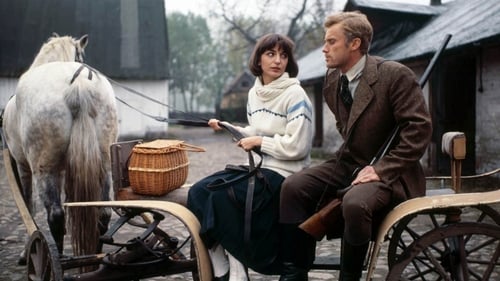
Doctor
Set in the late '20s. A thirtyish young man, who heads a small factory, faints at the funeral of a close friend. He decides to go home to his aunt and uncle for a while, but gets involved with a family of five women who had been in love with him at one time though he had apparently loved only one, who, unknown to him, has died since his departure. The women are mainly disillusioned with life or estranged from husbands while the youngest has a crush on him.

Kulczycki, sędzia śledczy
In 1931, just before the New Year, in a house of architect Henryk Zaremba scream rips the night. The daughter of Zaremba is found killed in her bedroom, obviously killed with a pickaxe. The police arrives and starts the investigation. Rita Gorgonova, the governess of the girl and also lover of Zaremba becomes the main suspect. Film based on real events - investigation and court trials of the most famous pre-war Polish murder case. Despite being historically accurate the movie is both involving and entertaining since the case was simple on the surface, but very complicated in details.
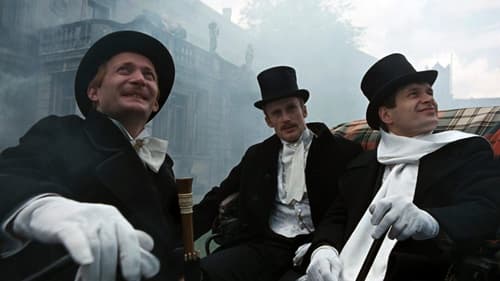
Trawinski
A finales del siglo XIX, la ciudad de Lodz se ha convertido en el epicentro de la industria textil, con la consiguiente necesidad de mano de obra inmigrante. Tres jóvenes estudiantes de Riga: un polaco católico, hijo de nobles terratenientes, un ambicioso judío y un alemán luterano deciden abrir una fábrica en esa ciudad para hacer fortuna y, sin escrúpulos ni prejuicios, se lanzan a acumular dinero y poder. (FILMAFFINITY)

Wacław
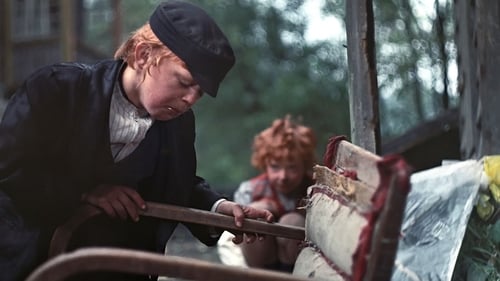
Dr. Tamten
In 1930s, a doctor has an affair with the wife of a wealthy industrialist in Poland.
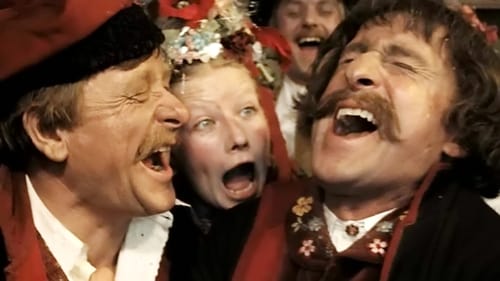
Poet
Set at the turn of the century, the story concerns a Polish poet living in Cracow who has decided to marry a peasant girl. The wedding is attended by a heterogenous group of people from all strata of Polish society, who dance, get drunk and lament Poland's 100-year-long division under Russia, Prussia, and Austria. The bridegroom, a painter friend, and a journalist each in turn is confronted with spectres of Polish past. In the end a call to arms is called but turns out to be a hoax.
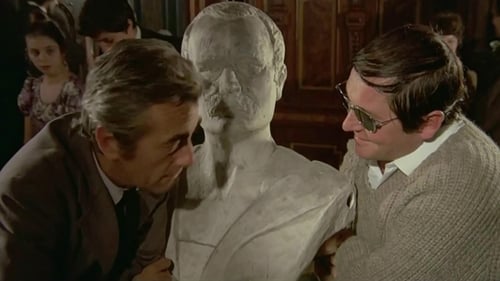
Andrzej
Un líder de la resistencia polaca muere durante la Segunda Guerra Mundial y regresa en forma espectral a enfrentar su pasado y de paso a contemplar, sorprendido, el estado deplorable en que se encuentra su país. Película de tipo experimental, prohibida durante más de 15 años en la Polonia comunista. (FILMAFFINITY)
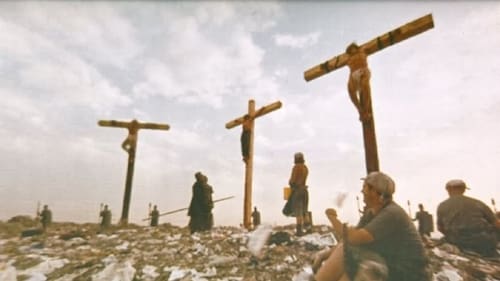
Afraniusz
The trial of Yeshua Ha-Notsri is led by prosecutor Pontius Pilate who believes in the innocence of the accused but is forced to sentence him to death. This biblical story is set in present-day Germany.
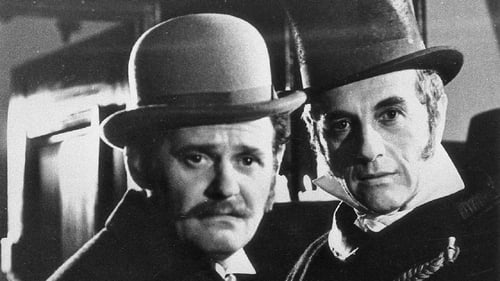
mistrz tańca
Polish short horror film made in 1968 by Jerzy Gruza upon the story of Jozef Korzeniowski as a part of the TV anthology "Opowiesci Niezwykle" (Incredible Stories). We have 20th century. Mysterious person - Jozef - comes to the apartment of a writer. The mysterious person takes the writer back in the 19th century, where they meet The Death.
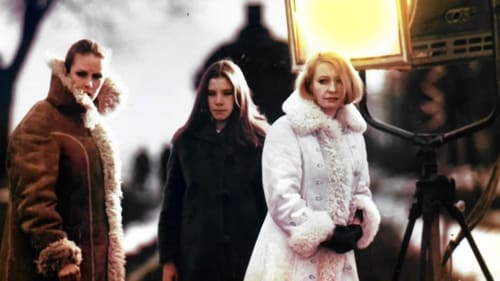
Andrzej
Wajda's homage to Zbigniew Cybulski, the "Polish James Dean" who starred in the director's ASHES AND DIAMONDS and died young. The movie follows the tribulations of a director attempting to make a movie with a Cybulski-like star who never shows up.

porucznik Gorczyński
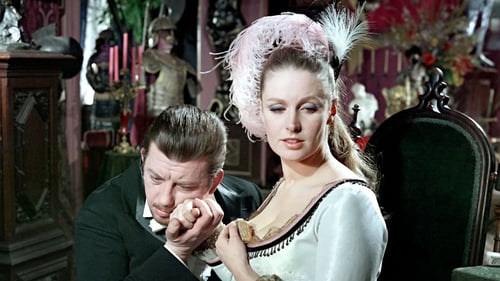
Kazimierz Starski
Set in the 19th century Warsaw. The indolence of aristocrats who, secure with their pensions, are too lazy to undertake new business risks, frustrates Wokulski. His ability to make money is respected but his lack of family and social rank is condescended to. Because of his "help" (in secret) to "the doll's" impecunious but influential father, the girl becomes aware of his affection.

hrabia Miński

niemiecki turysta

Bartolomeo
Short TV film upon the story of Ludwik Niemojski of the same title, which was a part of his "Incredible Stories". It tells about Bartolomeo, brilliant chess player, who had ruined his private life because of his passion for chess.
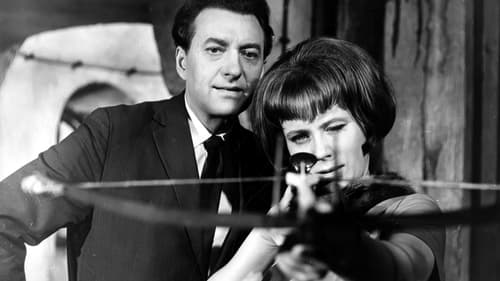
kapitan Stefan Berent
A classic criminal story set between Poland and South America.

Dr Roman Kawski
A young actor preparing for the part of Macbeth recalls his wartime memories connected with his mentor.

Andrzej
An architect Joanna tells her friend Halina on the telephone about her love troubles and suddenly hears a nice man's voice: "The best cure for love is another love." Then she becomes a forgers dispatcher mistaken for Honorata by telephone and decides to work out a forgers secret and the secret of her new love Andrzej.
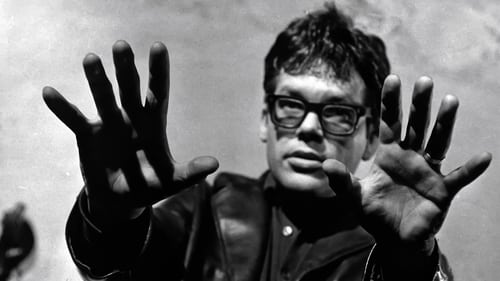
Pietuch
A man jumps off a moving train and goes to a small town to face its inhabitants, who seem familiar, but odd.

Piotr Grajewski
Three idealists - a communist secretary, a former RAF pilot and a female political activist - need to face the hardships and accusations of postwar Stalinist years before being finally rehabilitated.

Pisarz Nowak
The story concerns a succesful writer at the height of his career. He is in a state of crisis, unable to forget the girl he had a brief affair in the 40's. At the promotion of his new book he meets her after the years and reminisces about the past, when he was on a government mission to recover a missing art treasure, a triptych. After the years the girl, now married, barely remembers the whole thing, while he re-examines the affair which he has so much romanticized.

The young and beautiful wife of a prominent diplomat complains of boredom. To change her monotonous life, she has an affair, through which she gets entangled in intrigues and espionage affairs. (telemagazyn.pl)

Wiktor
"A Meeting in Bajka" tells a seemingly banal story of a marital triangle which bristles with intrigues and psychological nuances as a man, his wife and her lover rendezvous at the Bajce cafe.

Director
Five short stories.

Piotr
An unlikely couple - a Polish concentration camp inmate and a young German girl - stick together and try to survive the RAF bombing of Dresden in February 1945.

Jurek 'Gray'

Narrator

Narrator (voice)
One of several films by the Hoffman-Skórzewski duo, made as part of the "black series" of Polish documentaries showing social problems hidden from viewers behind the façade of socialist realist productions until the mid-1950s. The subject of the film are the effects of alcoholism, whose innocent victims are children.

Narrator (voice)
A staged documentary that started the Polish Black Series. The film takes the form of a warning against indifference to the rogue behavior of hooligan groups and their pernicious effect on young people flowing into the cities.

Narrator (voice)
This film criticizes various types of vandalism and behavior that is socially harmful: people spitting on the street, housewives wasting water, teenagers destroying sockets, passengers storming buses without paying attention to others, pedestrians devastating greenery in the city. Are you one of them?

Narrator (voice) (uncredited)

John Lane, dziennikarz amerykański
Two-part biopic about General Karol Świerczewski, living embodiment of the party line, and the group of party members from his hometown fighting the fascist forces towards the socialist state of affairs.

Narrator (voice)
This film describes the Second World Congress of Peace Defenders, held in Warsaw on November 16-22, 1950. Sheffield, an industrial city in England, was the initial location of the event, however, it was transferred to the capital of Poland at the very last moment.

Narrator (voice)
Tras el fin de la Segunda Guerra Mundial, el sistema comunista levantó una serie de grandes edificios de acero en la llamada “Nowa Huta”. Asistimos a los avances en la construcción de este barrio de Cracovia, creado en los años 1949-1951 y concebido para funcionar como ciudad independiente.
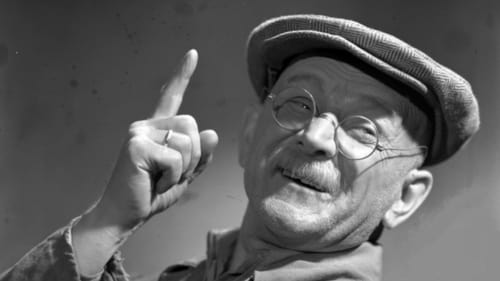
Stanisz, actor playing Lojza
A social drama that depicts a conflict between a young factory collective and a sympathetic but backward old specialist.





























